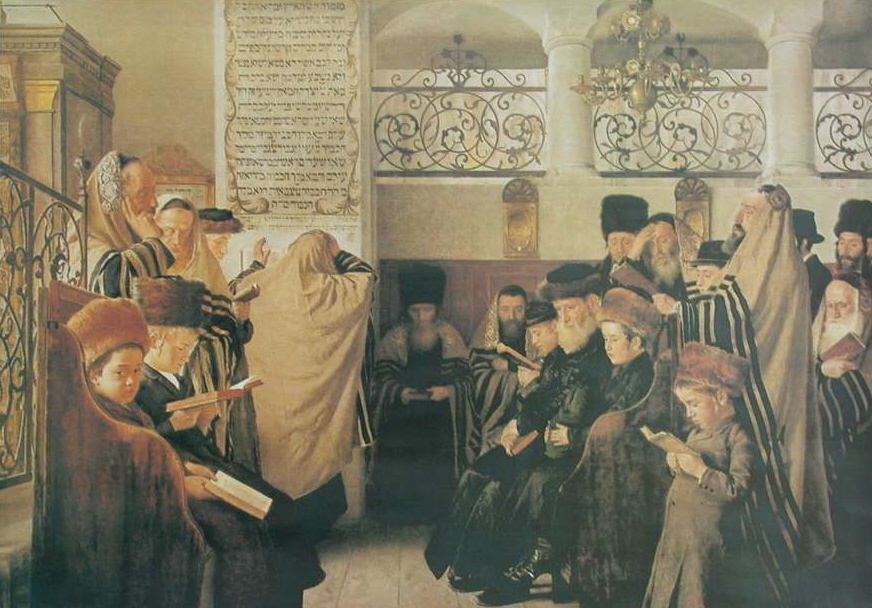Spiritual Sunday – Yom Kippur
For today’s post about Yom Kippur, the Jewish day of atonement (or the Sabbath of Sabbaths), I turned to the luminescent blog Velveteen Rabbi for assistance. Rabbi Rachel Barenblat finds three magnificent poems that capture the spirit of the holy day, one of which I share here.
As people will do this coming week, the Jewish Stanley Kunitz looks back over his life and reflects upon it. He realizes he is not who he was although he can detect some bedrock of identity, “some principle of being,” “from which I struggle not to stray.”
The poem plays off of Robert Frost’s “The Road Not Taken” although, unlike Frost, Kunitz doesn’t regret his choices. To be sure, he is tempted to regret them. When he looks back he sees the smoke of “abandoned campsites” visited by “scavenger angels,” which doesn’t suggest a triumphant march forward.
Although he may have been been committed to these campsites at one time or another—though he may even have assumed a tribal identity based on them (say, on a relationship or a job or a cause), now his tribe is scattered.The image of a scattered tribe would be particularly poignant a Jewish poet.
So how does the heart reconcile with all these losses. In “The Road Not Taken,” Frost imagines that, in the future, he will obsess about his past decisions, perhaps not in a good way. Kunitz acknowledges the potential for bitterness:
In a rising wind
the manic dust of my friends,
those who fell along the way,
bitterly stings my face.
But, as is appropriate for Yom Kippur, he uses this reflection in a positive way. The “manic dust” becomes the cloud that God used to guide the Israelites in the wilderness. In a dramatic turn that remind me of Eliot’s “Ash Wednesday” (Eliot writes, “Because I do not hope to turn again,” Kunitz, “Yet I turn, I turn”), the speaker exults. The stones, while they bruise the feet, nevertheless become precious. The vision he gets from the nimbus cloud is to “live in the layers, not on the litter.”
I like Barenblat’s analysis of this advice:
[H]ere is what I think it means, or at least, what it meant to me this year as we approached Yom Kippur. “Live in the layers, not on the litter.” Embrace the different layers of your story, embrace all the different selves you have been and will be. Open your heart to the you of childhood, the you of young adulthood, the you of maturity, the you of old age. Don’t take the path of living “on the litter,” on the trash-heap of the broken aspirations you’ve discarded. Go deeper than that.
Barenblat informs me that the poem’s final image is very much consistent with the Yom Kippur message. I turn to Wikipedia to make sure that I get it right:
According to Jewish tradition, God inscribes each person’s fate for the coming year into a book, the Book of Life, on Rosh Hashanah, and waits until Yom Kippur to “seal” the verdict. During the Days of Awe, a Jew tries to amend his or her behavior and seek forgiveness for wrongs done against God (bein adam leMakom) and against other human beings (bein adam lechavero). The evening and day of Yom Kippur are set aside for public and private petitions and confessions of guilt (Vidui). At the end of Yom Kippur, one hopes that they have been forgiven by God.
Barenblat notes,
At the end of the poem, Kunitz writes, “no doubt the next chapter / in my book of transformations / is already written. / I am not done with my changes.” I can’t think of a better sacred text for Yom Kippur, when our liturgy tells us that the next chapter in our book of transformations is written and sealed on our hearts. None of us is done with our changes.
Here’s the poem:
The Layers
By Stanley Kunitz
I have walked through many lives,
some of them my own,
and I am not who I was,
though some principle of being
abides, from which I struggle
not to stray.
When I look behind,
as I am compelled to look
before I can gather strength
to proceed on my journey,
I see the milestones dwindling
toward the horizon
and the slow fires trailing
from the abandoned campsites,
over which scavenger angels
wheel on heavy wings.
Oh, I have made myself a tribe
out of my true affections,
and my tribe is scattered!
How shall the heart be reconciled
to its feast of losses?
In a rising wind
the manic dust of my friends,
those who fell along the way,
bitterly stings my face.
Yet I turn, I turn,
exulting somewhat,
with my will intact to go
wherever I need to go,
and every stone on the road
precious to me.
In my darkest night,
when the moon was covered
and I roamed through wreckage,
a nimbus-clouded voice
directed me:
“Live in the layers,
not on the litter.”
Though I lack the art
to decipher it,
no doubt the next chapter
in my book of transformations
is already written.
I am not done with my changes.
Previous Yom Kippur posts:
A Ninth Century Prayer for Yom Kippur
Adrienne Rich Reflects on Yom Kippur and Conflict
Believe in the Utter Sweetness of Your Life


